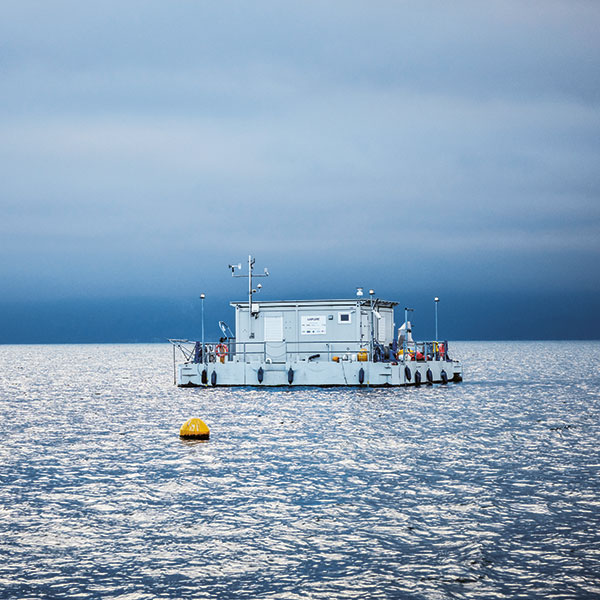Feature: An evidence-based parliament
Science changes opinions
Whether it was climate change, early education, drug policies or the brake on debt – Swiss parliamentarians have reconsidered their political stance when science brought something new to the table. We offer five examples.

“Until a few years ago, climate change was relatively low on my list of political priorities. It’s not that I didn’t see it as a problem. I just felt that Switzerland was actually doing enough about it. It was climate experts like Thomas Stocker and Reto Knutti who changed my mind. Time and again, these experts succeed in communicating scientific findings in a credible, comprehensible way. Let’s be honest: If I had to read a 200-page climate report every few weeks and make sense of it myself, I wouldn’t get very far. As a politician, I also depend on people who can explain complex issues clearly to me, and present research results at a manageable length.
“To me, the urgent nature of climate protection is beyond doubt. Of course this has also influenced my political stance. Last November, for example, I spoke out in favour of revising the energy law in the canton of Zurich. Among other things, it now stipulates that oil and gas heating systems must be replaced by an environmentally friendly solution when they reach the end of their service life. If you’d asked me five years ago, I would have already approved the idea. But I probably wouldn’t have wanted to oblige people to take such a step by statutory means. I definitely see things differently today. And this stance is well received in my party. Though colleagues from other parties with whom I work a lot sometimes say that I have lost my way, or even switched my allegiance to the Greens”.

“In my younger days I was vehemently opposed to the decriminalisation of drug use. Relaxing the law would clearly be the wrong path to take, I thought, because the country was already having a tough enough time dealing with the consequences of legal addictive substances such as tobacco and alcohol. My position wasn’t based on scientific studies or expert reports, but on personal convictions – and experiences. As a teenager, I saw how a girl at my school died of a heroin overdose when she was only fifteen. That was a big shock and left its mark on me. I was convinced that Switzerland would have to take even more restrictive measures than before, if we were going to achieve better protection for children and young people, and indeed for society as a whole. Unlike most of my party colleagues, I accordingly opposed any revision of the Law on narcotics back in 2008.
“I began to reconsider my position more and more, partly because of testimonials from various states in the USA, where attempts at a more liberal drug policy had by no means ended in disaster. But primarily it was a result of my many discussions with the French-Swiss association for addiction research GREA. We talked not only about drugs, but also about other addictions such as gambling. And I began to understand that punishment does not work, and that the war against drugs cannot be won. Today, I am clearly in favour of decriminalisation – and not just for so-called ‘soft’ drugs like cannabis, but also for hard drugs like heroin and cocaine. Addicts are not perpetrators, but human beings who need help”.

“I grew up in the canton of Valais, 1,500 metres above sea level. Even as a child, my father told me about the glaciers that his grandmother had once been able to see from our village, but that had long since disappeared from view. Climate change has been a personal and political concern of mine for over 20 years, despite the fact that I’m a historian, not a natural scientist. It is quite possible that my biography is one of the reasons.
“All the same, my knowledge about the consequences of climate change always remained abstract to a certain extent. So I have been all the more impressed in recent years by the photographs that have captured this ‘before and after’ of the glaciers – the insane speed at which they are simply melting away under our feet today. One photo in particular has remained etched in my mind from this past summer. It shows the glaciologist Matthias Huss on the Aletsch, shouldering a pole that measures how many metres the glacier has continued to shrink since last year. It’s six metres! That’s the equivalent of almost two storeys of a block of flats! In one fell swoop, such a picture can hammer home the dramatic consequences of climate change.
“I believe that visualising scientific findings in a striking way can play a very important role in ensuring that they have an impact, both on public debate and on politics. We have to see close-up how climate change is affecting us. Only then might it become clear, even to the last sceptic, that urgent action is needed. Either way, such images prove to me in all clarity once more that we are not at five minutes to midnight – it’s already five past”.

“A high level of public debt can endanger economic growth and the stability of the national economy. Of that, I used to be firmly convinced during my first legislative period as a National Councillor. Accordingly, until a few years ago I advocated for a rather restrictive fiscal policy and was decidedly in favour of reducing public debt, as was required by the debt brake. However, when I began to look more closely at the scientific basis for this – mostly for professional reasons, because I am a lecturer in financial policy at the University of Lucerne – it swiftly became evident that the scholarly literature mentions no causal relationship between government debt and economic growth. So it is impossible to say for sure whether high public debt leads to lower economic growth – or, conversely, whether low growth leads to greater debt.
“Today, one thing is clear to me: the Swiss federal government must be allowed to take on even more debt when it comes to mastering the great challenges of our time such as climate change or protecting biodiversity. Reducing debt as quickly as possible is not always the most sensible solution. For example, I am on the committee of the Climate Fund Initiative, which aims to set up a state climate fund by circumventing the debt brake. The Swiss national debt is so low that we don't need to worry about the national economy and the well-being of future generations”.

“Early learning initiatives are a core concern of my work as a politician. But that was not always the case. I have been involved in educational issues for a long time, but the first years of a child’s life never used to be of much importance to me in this regard. I thought playgroups and kindergarten were a good thing, though I didn’t regard them as crucial for later success at school. I thought that real learning begins in primary school, even for my own children. Today I know that we need to take this phase of life much more seriously. Supporting early childhood development doesn’t just bring immense benefits to children and their families alike, but also to society as a whole. Early learning makes a significant contribution to a child’s cognitive, social and emotional development.
“It was the University of Fribourg’s many studies on this topic that made me change my opinion at the time, but most of all it was the research undertaken by Martin Hafen, who is a sociologist and lecturer at Lucerne University. He made it clear to me how interventions in early childhood are of crucial importance for practically all prevention work. Afterwards, I campaigned for the citywide introduction of playgroups in Basel. They are especially intended to familiarise children from disadvantaged families with the Swiss school system from an early age, and to support them in their linguistic development. This is a concept that many other cities and cantons have now also adopted”.
Not all political parties were equally prepared to answer our question about whether scientific findings had ever caused them to change their opinions. In some cases, we had to be persistent. The Swiss People’s Party (SVP/UDC) regrettably did not provide any answer at all.



